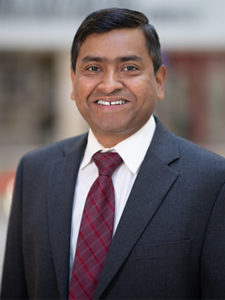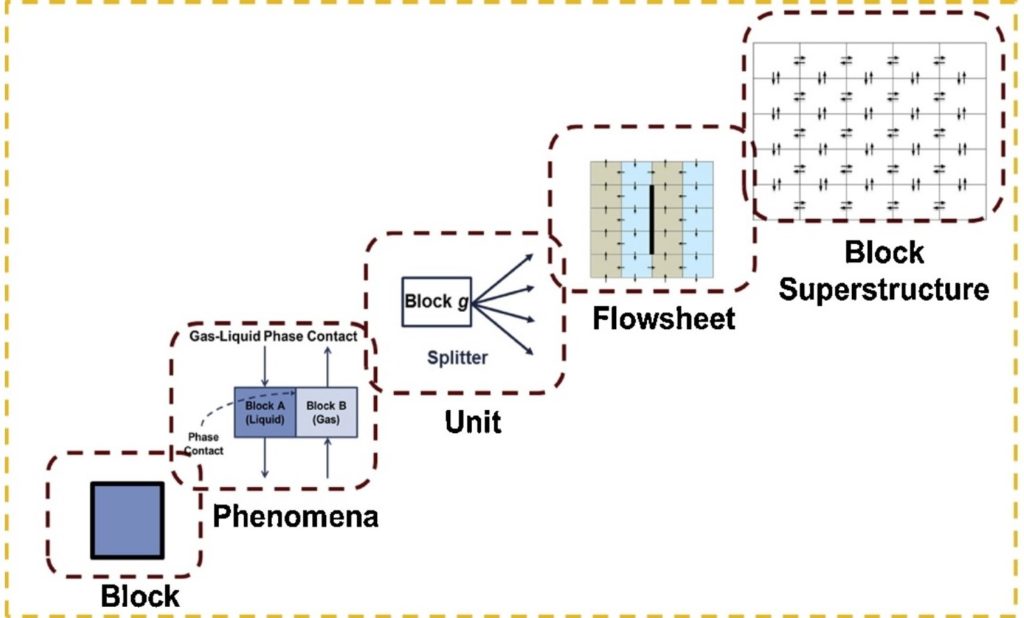Feature Faculty: Professor Faruque Hasan

In the ever-evolving landscape of energy production and consumption, the need for sustainable solutions is paramount. Prof. Faruque Hasan, Associate Professor of Chemical Engineering at Texas A&M University, Kim McDivitt ’88 and Phillip McDivitt ’87 Endowed Faculty Fellow, and Assistant Director of Decarbonization at the Texas A&M Energy Institute (TAMEI), has dedicated his career to shaping a greener, more efficient future by bridging science, engineering, and policy to address key global challenges in energy transition.
Since joining the faculty in 2014, Prof. Hasan has been at the forefront of developing systematic methods for designing, analyzing, and optimizing emerging chemical technologies for industrial decarbonization and sustainable energy transition.
The scientific outcomes of Prof. Hasan’s work have significantly improved the understanding of how to reduce greenhouse gas emissions in the chemical and power sectors. The various decision making frameworks and tools developed by his research group have contributed to improve the economics of carbon capture and conversion, natural gas utilization, hydrogen production, and many other energy systems.
“It is not trivial to design sustainable energy systems under various technological, economic, environmental, and regulatory constraints and uncertainties,” emphasized Prof. Hasan. “The design space is also vast. We need science-driven, sound and systematic techniques that can find optimal pathways for transitioning to a secure and sustainable energy future.”
Building Blocks of Innovation

At the core of Prof. Hasan’s innovative approach lies a pioneering creative design methodology that uses a finite set of design elements known as “abstract building blocks.” These efficiently encapsulate various design alternatives, forming the foundation of Prof. Hasan’s innovation. The building blocks are versatile, adaptable, and amenable to computationally efficient search algorithms.
His research illustrates how reaction, separation, and other physicochemical phenomena can be dynamically combined and intensified to drastically improve chemical conversion and separation efficiencies. By systematically combining abstract building blocks, Prof. Hasan’s research group has developed innovative chemical reaction, separation, and other processes along with novel materials. These out-of-the-box solutions redefine energy applications, propelling industry toward greener, more cost-effective, safer, and more sustainable chemical processes.
Contributions to Decarbonization
Underscoring his commitment to real-word impact, Prof. Hasan has co-authored more than 80 peer-reviewed journal articles and over 40 conference papers in addition to his three patents. He is also the scientific co-founder of CryoL, LLC, a technology startup company for cryogenic carbon capture technologies that reduce carbon emissions at a significantly reduced cost and energy of current carbon capture technologies.
Along with his publications, Prof. Hasan has received numerous awards and recognitions for his contributions to decarbonization research and academics. The following some of his impressive achievements throughout his career:
- National Academy of Science, Engineering, and Medicine (NASEM) committee on atmospheric methane removal, 2024
- Texas Academy of Medicine, Engineering, Science & Technology (TAMEST), Protégé, 2024
- Patent and Innovation Award, Texas A&M Office of Technology Commercialization, 2023
- Computing and Systems Technology (CAST) Outstanding Young Researcher Award, American Institute of Chemical Engineers (AIChE), 2021
- National Science Foundation CAREER Award, 2020
- American Chemical Society, Class of Influential Researchers, 2019
- World Technology Network Finalist Award (Environmental Category), 2018
- Outstanding Achievement Award, Texas A&M University, 2017
- American Chemical Society ACS PRF Doctoral New Investigator Award, 2017
- Ralph E. Powe Junior Faculty Enhancement Award in Engineering/Applied Sciences, 2015
- World Future Foundation PhD Prize in Environmental & Sustainability Research, 2010
Empowering Students to ‘Think Like Engineers’
Perhaps the most rewarding aspect of Professor Hasan’s journey lies in working alongside students. Together, they tackle pressing energy challenges – exploring pathways for industrial decarbonization, optimizing energy systems, and devising innovative solutions. Through mentorship and collaboration, Prof. Hasan nurtures the next generation of energy leaders.
In the classroom, Prof, Hasan instills systems thinking, encouraging students to take a holistic approach in finding cost-effective solutions that also minimize waste and prevent emissions in the chemical and energy industries.
“The biggest impact I have made through teaching is enhancing students’ learning experience and making them think “like an engineer,” explains Prof. Hasan. “My students learn to weigh global, economic, environmental, and societal impacts. Armed with this knowledge, they emerge as competitive professionals, securing positions in oil and gas, chemical, petrochemical, and utility sectors.”
For the past seven years, Prof. Hasan has taught courses that help students understand real-world challenges in the transition to a low-carbon future. His course titled “Carbon Capture, Utilization, and Storage (CCUS)” is offered within the TAMEI Master of Science in Energy program. It provides students with an introduction of CCUS technologies. From fundamental concepts to practical applications, students explore carbon capture and utilization processes, methods to compare CCUS technologies, economic dimensions of carbon management, and issues associated with CCUS implementation.
In addition to CCUS, Professor Hasan created a graduate-level course on “Systematic Process Design, Synthesis, and Intensification Methods” focused on systematic process intensification for energy and the environment with applications to carbon capture and storage, energy systems, gas separation, and utility networks. This course empowers students with the tools needed for optimization methods and mathematical programming techniques for process systems engineering.
“I am passionate about discovering and analyzing various pathways for industrial decarbonization and teaching them to students and future energy leaders,” says Prof. Hasan. “Working with students on exciting research problems gives me the most satisfaction.”
Prof. Hasan’s legacy is one of purpose, passion, and progress. His commitment to sustainable energy converges research and education to address global energy challenges. Prof. Hasan’s career demonstrates an unwavering commitment to a greener and safer future – one that converges energy and environmental stewardship.
